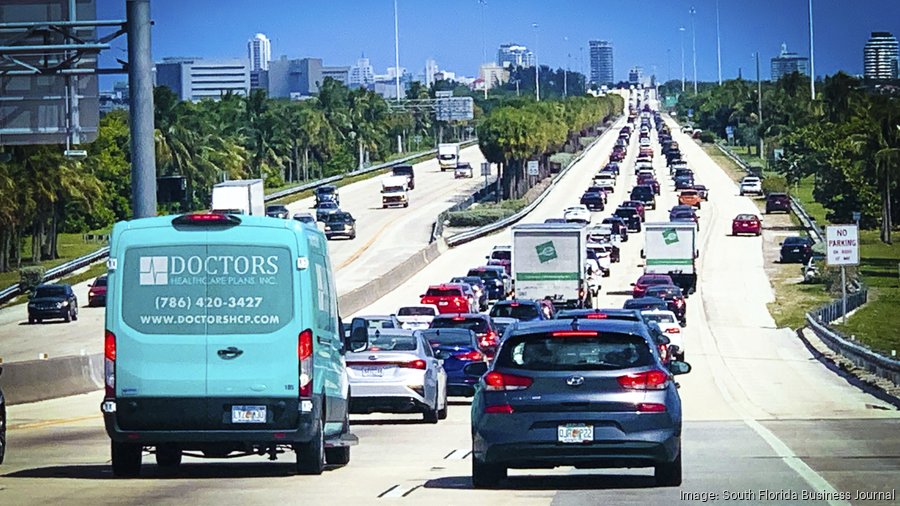Miami’s New Public Transportation Initiative: Miami Connect
Introduction to Miami Connect
As urban areas continue to grapple with traffic congestion and environmental sustainability, cities are compelled to seek innovative solutions to enhance public transportation systems. On November 24, 2024, Miami officials revealed an ambitious initiative titled “Miami Connect,” aimed at addressing these critical issues. This multifaceted public transportation plan is set to dramatically alter the urban mobility landscape of Miami starting in early 2025. By reducing reliance on private vehicles, the initiative seeks to alleviate the notorious gridlock that has long characterized the city’s roadways.
Key Components of Miami Connect
Miami Connect incorporates a variety of interconnected transportation solutions designed to streamline urban mobility. The plan’s core components include the expansion of the existing MetroMover system, the introduction of a fleet of electric buses, and the implementation of shared autonomous vehicle services within the downtown district. These elements collectively aim to create a cohesive and efficient public transit experience for the city’s residents while encouraging sustainable practices.
Expansion of the MetroMover System
The centerpiece of the Miami Connect initiative is the expansion of the MetroMover, a hallmark of Miami’s downtown transit infrastructure. Currently serving the downtown area, the MetroMover will see the addition of several new stations connecting vital neighborhoods such as Brickell, Wynwood, and Little Havana. This expansion aims to afford commuters quicker, more reliable transit options, encouraging a shift away from personal vehicles and towards more communal forms of transport.
Deployment of Electric Buses
As part of its commitment to environmental stewardship, Miami Connect will include the deployment of 200 electric buses across Miami-Dade County. These vehicles will be equipped with cutting-edge green technology to minimize carbon emissions and contribute to the city’s broader climate goals. The introduction of electric buses is a significant step toward enhancing the sustainability of public transportation systems and reflects Miami’s commitment to creating a cleaner, greener urban environment.
Shared Autonomous Vehicle Services
Among the most innovative aspects of Miami Connect is the introduction of shared autonomous vehicle services. These driverless shuttles will operate in congested areas, providing efficient short-distance rides. By integrating these autonomous vehicles with existing public transit options, the initiative seeks to reduce the volume of cars on the road, positioning itself as a forward-thinking solution to transportation challenges. Consumers will be able to access these rides via a mobile application, enhancing user convenience and accessibility.
Support and Economic Implications
The Miami Connect initiative has garnered enthusiastic backing from various stakeholders, including environmental advocates, urban planners, and local businesses. The proposal responds to acute concerns about Miami’s rising traffic congestion, which has seen residents spending an average of 120 hours annually stuck in traffic, making it one of the most congested metropolitan areas in the United States. Additionally, this initiative is projected to yield considerable economic benefits, such as job creation in sectors like construction, technology, and operations, thereby stimulating the local economy.
Conclusion: A Vision for Sustainable Urban Mobility
Miami Connect embodies a visionary approach to urban transportation, with the potential to significantly reshape the city’s mobility framework. By focusing on sustainability, connectivity, and technological innovation, this initiative aims to mitigate traffic congestion for Miami residents while promoting a greener future. If successful, Miami Connect could serve as a model for other urban centers contending with similar challenges, paving the way for a broader movement towards improved public transport systems across the country.
FAQs
What is the Miami Connect initiative?
Miami Connect is a public transportation project designed to reduce traffic congestion and enhance sustainability in Miami through an interconnected system that includes the expansion of the MetroMover, the introduction of electric buses, and shared autonomous vehicle services.
When will the Miami Connect project be implemented?
The implementation of the Miami Connect initiative is scheduled to begin in early 2025.
How will the expansion of the MetroMover benefit commuters?
The expansion of the MetroMover will add new stations in key neighborhoods, making transit options more accessible, reliable, and efficient for commuters, thereby encouraging a shift away from the use of personal vehicles.
What role will electric buses play in Miami Connect?
The initiative will deploy 200 eco-friendly electric buses equipped with green technology to minimize carbon emissions, contributing to Miami’s climate goals and enhancing public transportation sustainability.
What are shared autonomous vehicle services?
Shared autonomous vehicle services are driverless shuttles designed to provide efficient short-distance rides in busy urban areas, integrated with other forms of public transit to reduce the number of cars on the roads.
What economic benefits can be expected from Miami Connect?
The initiative is expected to create thousands of jobs in construction, tech, and operations, as well as boost property values in areas near new transportation hubs, supporting overall economic development in the region.

